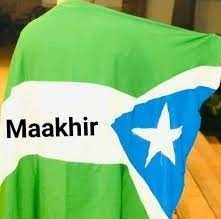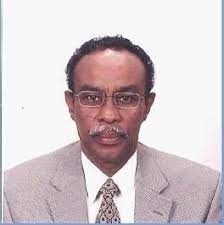By Mohamed Elmi Dhooley
“You can always count on Americans to do the right thing – after they’ve tried everything else” – Winston Churchill
The essence of the above quote attributed to Winston Churchill is when people are persistent or exhaust all other options in quest of justice, they finally arrive at the right solution even if it takes years and years of trial and error.

In 2009, General Abdullah Jama Ilkajir made a momentous decision to run for Puntland’s presidential election. His campaign was fueled by a steadfast determination to unite his fragmented society, eradicate corruption, оr put an end to the exploitation of Somalia’s maritime and land resources. His mission extended further to addressing and reversing the deeply rooted injustices within Puntland’s clan-based, power-sharing system. Recognized as a beacon of hope and integrity, General Ilkajir garnered substantial support both in Somalia and in the diaspora. Originating from Maakhir, then a self-proclaimed state in northern Somalia, his influence was so profound that, according to reliable sources, he had compelled its president into exile.
His leadership was seen as a turning point, offering a new vision for a region long plagued by political and economic decline and otherwise nonexistent or fragile institutions. Despite his charisma and leadership qualities, General Ilka-jir chose to avoid the legitimate demands of his people, a new political direction. His decision to accept a mere ministerial post confirmed to many the vacuum of principled political leadership in the Maakhir region.

The prevailing sentiment among politicians, clan elders, civil servants, business leaders, diaspora technocrats, and students from Maakhir can be divided into two camps. The first camp, the old guard, views collaboration with Puntland as essential and non-negotiable, believing in a symbiotic relationship between Sanaag, western Bari, Hayland (SWBH) and Puntland. However, this alliance defended by the old guard comes with a significant cost and detrimental effect on the region as a whole. Politically directed projects often fail to address local needs, resulting in a lack of consensus on priorities. This misalignment also leads to ongoing disorganization and inefficiency in governance. Additionally, the old guard’s approach stifles accountability (isla-xisaabtan) and hinders the region’s potential for autonomous development, perpetuating dependence on Puntland’s power brokers while limiting Maakhir’s ability to pursue its own strategic interests.
The second camp, the Young Turks of Maakhir, recognizes the urgent need for political reform and self-governance, emphasizing that Maakhir’s current state of political and economic stagnation cannot be sustained. They argue that a shift towards an autonomous governance structure is imperative for the region’s development and stability. This camp is acutely aware that the decentralized aid programs from international organizations like the United Nations are frequently misappropriated. Without formal recognition from any country or legal body, Maakhir lacks the authority to enter into binding agreements in the interests of commerce, FDIs, or to regulate the flow and management of aid effectively.
The absence of formal recognition presents significant challenges. It undermines the region’s capacity to engage in regional and international diplomacy, secure investment, and implement sustainable development projects. The inability to protect Maakhir’s land and natural resources from foreign exploitation is a direct consequence of this lack of recognition. This issue is starkly illustrated by the conflicts instigated by Africa Oil and Range Resources in Majihan, Bari in the past. Previously, these foreign companies have exploited the region’s natural resources without the consent of Maakhiris or compensation to the local population, leading to environmental degradation, displacement, and social unrest.
The exploitation of Maakhir’s resources by foreign corporations highlights the vulnerability of the region under its current governance structure within Puntland. The local communities have little to no say in the management and benefits of their own natural resources and tax revenues, resulting in a loss of potential revenue that could be used for local development. The second camp contends that establishing a recognized and autonomous governance system would enable Maakhir to negotiate fairer terms with foreign investors, ensuring that the exploitation of natural resources benefits the local population and contributes to sustainable development.
Moreover, the establishment of self-governance is seen as a pathway to fostering greater political stability and social cohesion within Maakhir. By creating institutions that are accountable to the local population, this camp believes that trust in leadership can be restored, and the people of Maakhir can work collectively towards common goals. This would involve building a robust legal framework to protect property rights, enforce contracts, and manage disputes—critical components for attracting investment and fostering economic growth.
Lastly, the Young Turks of Maakhir, advocate for a comprehensive approach to structural change that encompasses not only political autonomy but also economic and social reforms. They envision a future where Maakhir is recognized as a legitimate political entity within the Federal Republic of Somalia, capable of managing its own affairs and utilizing its resources to improve the lives of its people. This vision includes developing infrastructure such as the rehabilitation of the Las Qoray Port and its connecting Geeldoora route, the Eldahir-Ergiavo Road Project, education, healthcare, and other essential services that are currently underdeveloped due to the region’s political marginalization. By addressing these issues, Maakhir can transform from a region struggling with exploitation and neglect to one that is self-sufficient, prosperous, and a respected member of the Federal Republic of Somalia.
As Max Weber argued, “Political power does not stem just from economic resources” such as direct control of functioning national ports or oil fields but from the expressive qualities of honest leaders representing organized community with long-term vision. Power can reside in organization (which entails durable resources).
The argument that Maakhir lacks the resources for self-support is weak. The current socio-economic conditions of SWBH are reversible if Maakhiris acknowledge one of the root causes –those who prioritize personal gain over the long-term interests of their people—and work toward self-governance. Per the essence of Churchill’s quote, it is my belief that this solution is the only viable one left for us to eliminate the “disputed status”, bridge the gap in underdevelopment, and improve livelihood standards. Ultimately, Maakhir will be recognized as a legitimate and integral part of Somalia’s political landscape.
Mohamed Elmi
Email: ahafinance@gmail.com
Minneapolis, MN

Leave a Reply